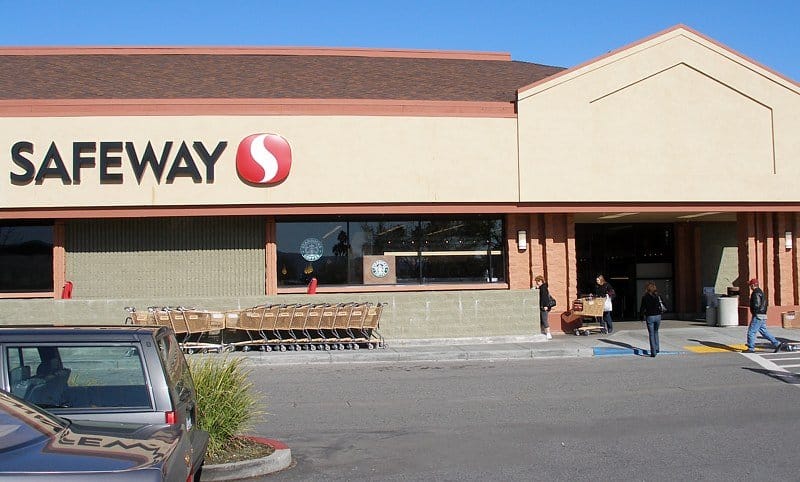
Ryan Gorman is a student at Harvard Law School.
Safeway workers in northern California are threatening to go on strike. Last week, the union representing the roughly 14,000 Safeway workers in the state cancelled its contract with the company after over a year of attempting to negotiate an extension. United Food and Commercial Workers Local 5 will need to seek permission from the UFCW International Union before engaging in the strike. In the meantime, workers plan to engage in a series of demonstrations and informational pickets, highlighting their demands for higher wages and more full-time work opportunities. According to UFCW Local 5, around 95% of the union’s members voted in favor of authorizing a strike. UFCW Local 5 noted yesterday that the union’s bargaining committee had scheduled additional negotiating sessions with Safeway for today and tomorrow – but emphasized that scheduled protest actions would proceed until an agreement had been reached.
On the other side of the country, grocery store workers in the Washington, D.C., area are also threatening a strike. UFCW Local 400 is currently in contract negotiations with Safeway and Giant. UFCW Local 400 represents around 25,000 workers at over 280 of the companies’ grocery stores in the area. The union and the companies remain at odds over employee pensions, a proposed three-year freeze on new-hire wages, and a proposed limit on part-time hours that could leave some workers ineligible for benefits they might otherwise receive. Safeway and Giant have argued that market pressures—namely the expansion of non-union grocery chains like Aldi and Target—constrain the companies’ bargaining ability.
In other strike-related news, graduate-student workers at UC-Santa Cruz (UCSC) remain on strike. Many graduate students spent last week on the picket line, engaged in a wildcat strike that began last Monday. UAW Local 2865, the union representing graduate-student workers in the University of California system, has not authorized the strike. UCSC has jumped on the unauthorized nature of the strike, stating that they are legally barred from negotiating with the strikers. Andrew Schwartz wrote for The New Republic yesterday about the wildcat strike’s connection to the Santa Cruz housing crisis. Teaching assistant wages are currently governed by a university system-wide contract ratified in 2018. But, the striking student workers argue that that those wages do not match their area’s high living cost. According to a post-ratification poll of union workers, over 80% of graduate student instructors at the university’s Santa Cruz campus voted against the contract. As the Los Angeles Times points out, the average monthly wage for the teaching assistants is about $2,400 a month. By one metric, the average monthly rent for a one-bedroom apartment in Santa Cruz can reach $2,600. As of last Friday, at least 17 people have been arrested in connection with the demonstrations, several of which have involved blocking traffic near campus.
As Maxwell wrote about for OnLabor last Thursday, organized labor is set to play a major role in the Democratic presidential primary. Yesterday, Rachel M. Cohen wrote in The Intercept about a more local electoral battle: the coalition of labor unions (and other progressive groups) trying to help congressional candidate Jessica Cisneros defeat incumbent representative Henry Cuellar in the Democratic primary for Texas’s 28th Congressional District. Cuellar is considered one of the most conservative Democrats in the House. Groups that have endorsed Cisneros include the Communication Workers of America and the Service Employees International Union. Yesterday, these groups (joined by the Working Families Party and the Texas Organizing Project) announced they would spend at least $350,000 in support of Cisneros’s election.






Daily News & Commentary
Start your day with our roundup of the latest labor developments. See all
April 17
Southern governors oppose UAW organizing in their states; Florida bans local heat protections for workers; Google employees occupy company offices to protest contracts with the Israeli government
April 16
EEOC publishes final regulation implementing the Pregnant Workers Fairness Act, Volkswagen workers in Tennessee gear up for a union election, and the First Circuit revives the Whole Foods case over BLM masks.
April 15
The Supreme Court ruled in favor of bakery delivery drivers in an exemption from mandatory arbitration case; A Teamsters Local ends its 18-month strike by accepting settlement payments and agreeing to dissolve
April 14
SAG-AFTRA wins AI protections; DeSantis signs Florida bill preempting local employment regulation; NLRB judge says Whole Foods subpoenas violate federal labor law.
April 12
The EEOC weighs in on an anti-discrimination lawsuit against Workday; a rule expanding overtime protection moves closer to publication; Amazon decreases spending on anti-union consultants.
April 11
Maine Legislature votes to grant farm workers minimum wage and labor rights; Apple store workers in New Jersey petition to unionize; and Wisconsin Governor vetoes legislation to rollback child labor laws.